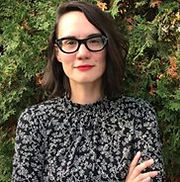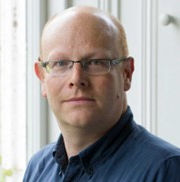
Date:
5th June 2025
Time:
10:40 AM - 17:00PM
Venue:
Ono Azusa International Conference Room (Waseda University)
Admission:
Free
Registration:
Not required
Opening
Opening Remarks
10:40 AM

Waseda University
Yuji Uesugi
Professor Yuji Uesugi is professor at Waseda University, holding a PhD in International Conflict Analysis (2002, University of Kent) a MS in Conflict Analysis and Resolution (1996, Institute for Conflict Analysis and Resolution, George Mason University). He has conducted research in peace and conflict studies, especially focusing on the role of intermediaries such as the United Nations. He has also served as a conflict resolution/peacebuilding practitioner in Timor-Leste, Cambodia, Aceh (Indonesia), Bangsamoro (Philippines), Afghanistan, and Okinawa (Japan). He also serves as Vice Chairman for Okinawa Peace Assistance Center and Director for Hiroshima Peacebuilders Center.

Brandon University
Allison McCulloch
Professor Allison McCulloch is a researcher specializing in the politics of ethnically divided societies, with a focus on peace processes, democratization, and power-sharing in post-conflict settings. Their work examines how power-sharing governments navigate political crises, incentivize ethnopolitical behavior, and can become more inclusive beyond ethnonational divides. They lead multiple international research projects, including an Open Research Area 7/SSHRC-funded study on citizen inclusion in power-sharing settlements, and a SSHRC Insight Development Grant project on refugee governance in divided societies. They also serve as co-investigator on a Swiss Network for International Studies project exploring the durability of power-sharing in Lebanon, Syria, and Iraq.
Session 1
Theoretical discussion
11:00 AM - 12:20 PM
1. Power-Sharing Peace Settlements: Hard to Love, Difficult to Change

Brandon University
Allison McCulloch
Professor Allison McCulloch is a researcher specializing in the politics of ethnically divided societies, with a focus on peace processes, democratization, and power-sharing in post-conflict settings. Their work examines how power-sharing governments navigate political crises, incentivize ethnopolitical behavior, and can become more inclusive beyond ethnonational divides. They lead multiple international research projects, including an Open Research Area 7/SSHRC-funded study on citizen inclusion in power-sharing settlements, and a SSHRC Insight Development Grant project on refugee governance in divided societies. They also serve as co-investigator on a Swiss Network for International Studies project exploring the durability of power-sharing in Lebanon, Syria, and Iraq.

University of Aberdeen
Joanne McEvoy
Professor Joanne McEvoy is Head of Social Science and Professor of Politics at the University of Aberdeen. Holding a PhD from Queen’s University Belfast, they were previously a Post-Doctoral Fellow at the University of Pennsylvania’s Program in Ethnic Conflict. Their research centers on the politics of deeply divided societies, power-sharing arrangements, and constitutional change post-Brexit. They have published widely in leading journals and with major academic presses. As Co-Investigator on the ORA7-funded INCLUSIVEPEACE project, they examine citizen inclusion in power-sharing across seven global case studies. They also lead research on constitutional voices in Ireland, collaborating with scholars and civil society organizations.
2. Descriptive vs Substantive Representation in Post Conflict Societies

University of Kent
Edward Morgan-Jones
Professor Edward Morgan-Jones is Reader in Comparative Politics at the University of Kent and Divisional Director of Graduate Studies in Human and Social Sciences. He received his DPhil in Politics from the University of Oxford and previously held a fellowship at Keble College. His research focuses on the design, function, and legitimacy of political institutions in post-conflict and democratic settings. He is Co-Investigator on the ORA-ESRC-funded Inclusive Peace Project and the ERC-funded Peace Return Project. His work has appeared in leading journals such as APSR, CPS, BJPolS, and JCR, and he regularly engages with policy communities.

University of Kent
Raluca Popp
Dr Raluca Popp is a Lecturer at the University of Kent, specializing in electoral behaviour, political representation, and conflict analysis. She completed her PhD at the University of Exeter in 2018 and has developed expertise in Voting Advice Applications (VAAs) through her work in the Marie Curie Industry and Doctoral Training Network. Her research uses large-scale VAA datasets and online methodologies, including multilevel regression and poststratification. A member of the Conflict Analysis Research Centre, Dr Popp applies experimental methods such as conjoint analysis to explore citizen preferences in peace processes and public engagement in post-conflict peacebuilding initiatives.

University of Essex
Laura Sudulich
Dr Laura Sudulich is Director of Partnerships, Government at the University of Essex. She holds a PhD in Political Science from Trinity College Dublin and has held academic positions at the University of Kent, University of Amsterdam, Université Libre de Bruxelles, and the European University Institute. Her research focuses on public opinion, electoral campaigns, and voting behaviour. She has extensive experience working with voter and elite surveys at both national and EU levels. Dr Sudulich also serves as an Editor for the European Consortium for Political Research Press and is widely recognized for her contributions to comparative political behaviour studies.
Lunch Break
12:20 PM - 13:10 PM
Session 2
Case studies
13:10 PM - 14:50 PM
3. How do Actors Perceive Power-Sharing and the Inclusion of Citizens in the Decision-making Process in New Caledonia?

University of New Caledonia
Anthony Tutugoro
Anthony Tutugoro is a Kanak researcher and received his PhD from the Université de Polynésie Française, where he explores sovereignty and decolonization in New Caledonia. His doctoral research, titled “Analysis of the strategies for the reconquest of sovereignty by the independence movement in New Caledonia,” examines the political strategies of the Kanak independence movement. He also teaches constitutional law at the Université de Nouvelle-Calédonie. In addition to his academic work, Tutugoro is an accomplished musician performing under the name Inotux, using music as a platform to express cultural identity and political engagement. His interdisciplinary profile bridges scholarship, activism, and creative expression.
4. Adaptability of Power-Sharing Agreements and Citizens’ Preferences: Lessons from Bosnia and Herzegovina

Brandon University
Valentino Grbavac
Dr. Valentino Grbavac is a postdoctoral fellow in the Department of Political Science at Brandon University, contributing to the Citizen Inclusion in Power-Sharing Settlements project. His research examines power-sharing, federalism, and institutional design in deeply divided societies, with a focus on how governance structures can promote stability, inclusion, and democratic resilience. He holds an MA in Eurasian, Russian, and East European Studies and an honors certificate in International Business Diplomacy from Georgetown University’s School of Foreign Service. Dr. Grbavac’s work bridges comparative politics and conflict resolution, offering insights into the design and legitimacy of political institutions in multiethnic states.
Coffee Break
14:50 PM - 15:05 PM
Session 3
Citizens Inclusion in Power Sharing
15:05 PM
5. Conflict Exposure and Attitudes towards Peace Settlements

University of Warwick
Neophytos Loizides
Professor Neophytos Loizides is a scholar of conflict resolution, political institution building, and forced migration, with a focus on citizen inclusion in violently divided societies. He leads the ERC Advanced Grant–funded PEACERETURN project on durable solutions to displacement and the ORA7-funded Inclusive Peace project, collaborating with institutions across Europe, North America, and Asia. His research combines qualitative and experimental methods, and they have trained over 120 diplomats through interactive mediation programs. With over fifty publications, they have held positions at Kent, Queen’s Belfast, Princeton, and Harvard, and now serve as Professor at PAIS and Senior Advisor to the Forum of Federations.

University of Warwick
Sadi Shanaah
Dr. Sadi Shanaah is a Research Fellow on the ERC-funded Neoliberal Terror project at the University of Warwick, where he investigates the structural and political dynamics of preventing and countering violent extremism (P/CVE) policies across 38 countries. His research focuses on conflict, security, and political violence, with particular interest in how perceptions of existential threats influence public attitudes and behaviors. He holds a PhD in Political Science from Aarhus University and previously worked as a foreign affairs adviser and NGO leader in the Czech Republic. His work bridges academic and practitioner communities, contributing to scholarship and policy on extremism and democratic resilience.

University of Warwick
Aimee Smith
Dr. Amiee Smith is a Research Fellow at PAIS, University of Warwick, working on the Open Research Area (ORA7) funded Inclusive Peace project in collaboration with research councils in the UK, Canada, France/New Caledonia, and Japan. She received her PhD in Sociology from the University of Aberdeen and has held postdoctoral positions at Queen’s University Belfast and University College Dublin. Her research focuses on the sociology of childhood and youth, particularly in relation to education, peace, and gender equality. She has led and contributed to mixed-methods longitudinal studies and intervention evaluations in Ireland, Sierra Leone, the UK, and internationally.
6. Shaping Sustainable Peace: Citizen Perspectives on Settlements Design

University of Kent
Edward Morgan-Jones
Professor Edward Morgan-Jones is Reader in Comparative Politics at the University of Kent and Divisional Director of Graduate Studies in Human and Social Sciences. He received his DPhil in Politics from the University of Oxford and previously held a fellowship at Keble College. His research focuses on the design, function, and legitimacy of political institutions in post-conflict and democratic settings. He is Co-Investigator on the ORA-ESRC-funded Inclusive Peace Project and the ERC-funded Peace Return Project. His work has appeared in leading journals such as APSR, CPS, BJPolS, and JCR, and he regularly engages with policy communities.

University of Kent
Raluca Popp
Dr Raluca Popp is a Lecturer at the University of Kent, specializing in electoral behaviour, political representation, and conflict analysis. She completed her PhD at the University of Exeter in 2018 and has developed expertise in Voting Advice Applications (VAAs) through her work in the Marie Curie Industry and Doctoral Training Network. Her research uses large-scale VAA datasets and online methodologies, including multilevel regression and poststratification. A member of the Conflict Analysis Research Centre, Dr Popp applies experimental methods such as conjoint analysis to explore citizen preferences in peace processes and public engagement in post-conflict peacebuilding initiatives.

University of Essex
Laura Sudulich
Dr Laura Sudulich is Director of Partnerships, Government at the University of Essex. She holds a PhD in Political Science from Trinity College Dublin and has held academic positions at the University of Kent, University of Amsterdam, Université Libre de Bruxelles, and the European University Institute. Her research focuses on public opinion, electoral campaigns, and voting behaviour. She has extensive experience working with voter and elite surveys at both national and EU levels. Dr Sudulich also serves as an Editor for the European Consortium for Political Research Press and is widely recognized for her contributions to comparative political behaviour studies.
Closing
Closing Remark
16:45 PM - 17:00 PM

Waseda University
Yuji Uesugi
Professor Yuji Uesugi is professor at Waseda University, holding a PhD in International Conflict Analysis (2002, University of Kent) a MS in Conflict Analysis and Resolution (1996, Institute for Conflict Analysis and Resolution, George Mason University). He has conducted research in peace and conflict studies, especially focusing on the role of intermediaries such as the United Nations. He has also served as a conflict resolution/peacebuilding practitioner in Timor-Leste, Cambodia, Aceh (Indonesia), Bangsamoro (Philippines), Afghanistan, and Okinawa (Japan). He also serves as Vice Chairman for Okinawa Peace Assistance Center and Director for Hiroshima Peacebuilders Center.